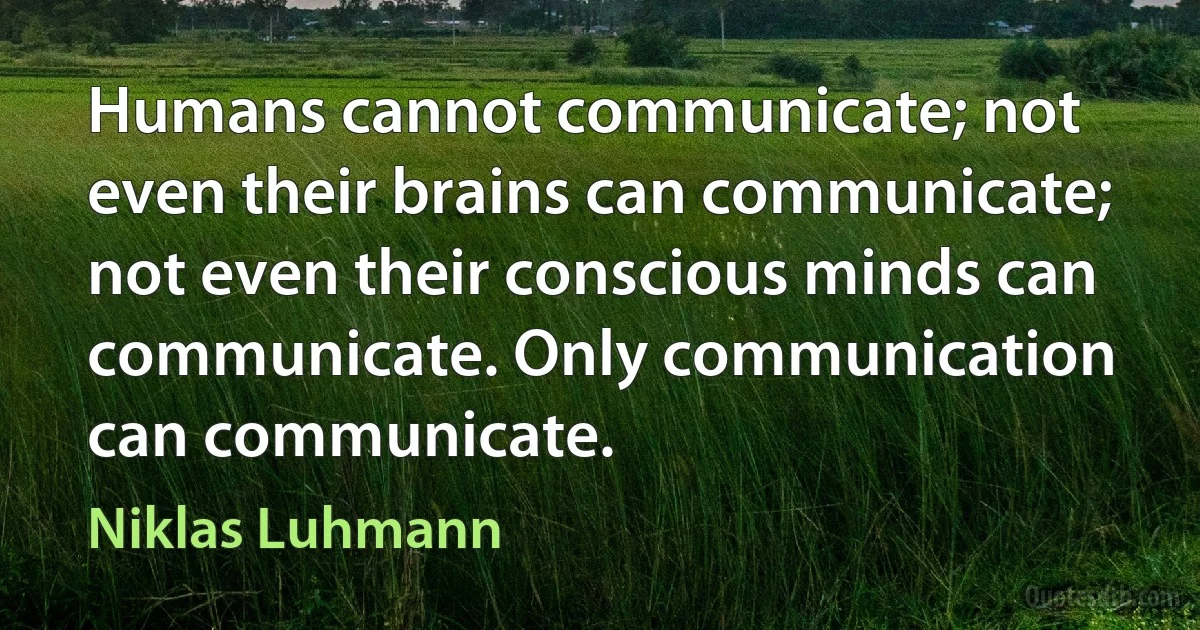Niklas Luhmann quotes
The second-order cybernetics worked out by Heinz von Foerster is rightly held to be a constructivist theory, if no an a manifesto for operational constructivism. The reverse doesn't apply, however. Constructivist epistemologies do not necessarily have the rigor of a cybernetics of cybernetics. One can obeserve congnitions as constructions of an observer, without linking with this the theory that the observing observer observes himself or herself as an observer.

Niklas Luhmann
Does knowledge rest on construction in the sense that it only functions because the knowing system is operatively closed, therefore: because it can maintain no operative contact with the outside world; and because it therefore remains dependent, for everything that it constructs, on its own distinction between self-reference and allo-reference?

Niklas Luhmann
Unlike philosophy, art does not search for islands of security from which other experiences can be expelled as fantastic or imaginary, or rejected as a world of secondary qualities or enjoyment, of pleasure or common sense. Art radicalizes the difference between the real and the merely possible in order to show through works of its own that even in the realm of possibility there is order after all. Art opposes, to use a Hegelian formulation, "the prose of the world,” but for precisely this reason it needs this contrast.

Niklas Luhmann
We are still spellbound by a tradition that arranged psychological faculties hierarchically, relegating ‘sensuousness' - that is, perception - to a lower position in comparison to higher, reflective functions of reason and understanding. The most advanced versions of ‘conceptual art' still follow this tradition. By refusing to base themselves in sensuously perceptible distinctions between works of art and other objects, these works seek to avoid reducing art to the realm of sense perception.

Niklas Luhmann
The activity of observing establishes a distinction in a space that remains unmarked, the space from which the observer executes the distinction. The observer must employ a distinction in order to generate the difference between unmarked and marked space, and between himself and what he indicates. The whole point of this distinction (its intention) is to mark something as distinct from something else. At the same time, the observer - in drawing a distinction - makes himself visable to others. He betrays his presence - even if a further distinction is required to distinguish him.

Niklas Luhmann

![By representing themselves as a system [the mass media ] generates boundaries with an inside and an outside that is inaccessible to them. They too reflect [or represent] their outside as public life, so long as specific external relationships, such as to politics or to the advertisers, are not in question. (Niklas Luhmann)](https://cdn.quotesdtb.com/img/quotes_images_webp/77/niklas-luhmann-external-inaccessible-300877.webp)
